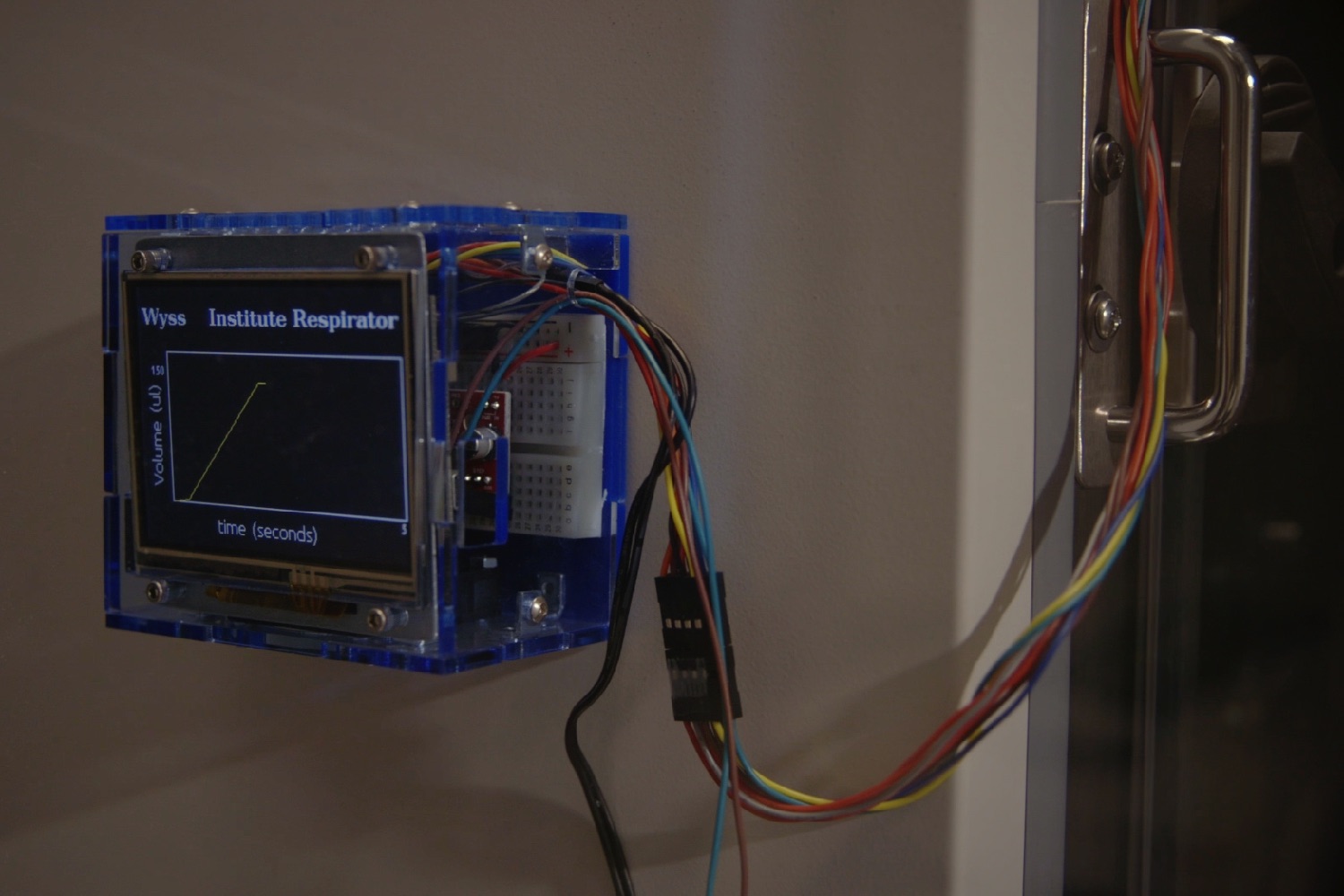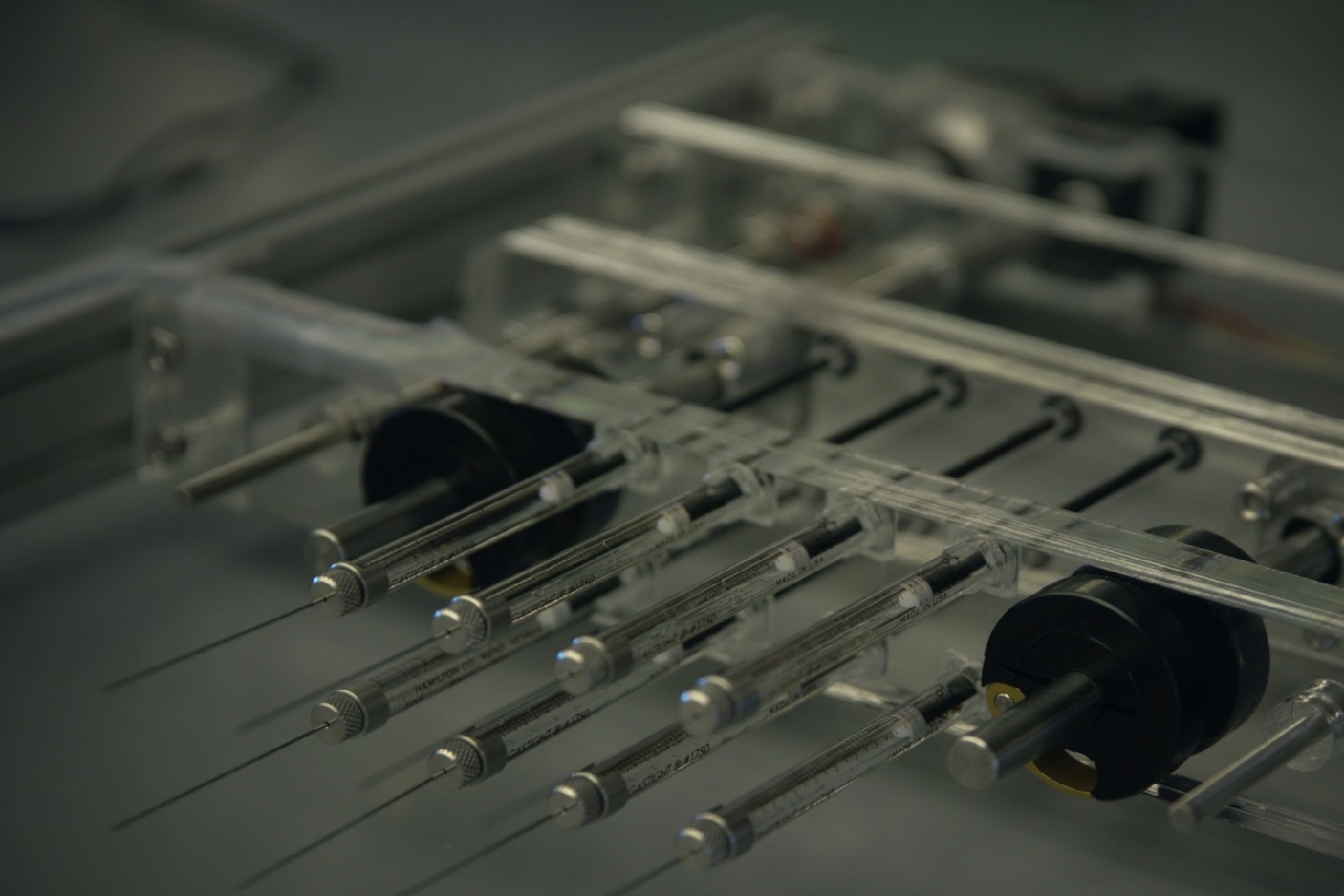The work will help further our understanding of conditions like Chronic Obstructive Pulmonary Disease (COPD), an irreversible inflammatory disease of the lung’s small airways, and will aid with investigations into newer smoking-related trends like vaping.
“It’s like a Gatling gun, a round turret with 10-12 cigarettes mounted in it,” is how Dr. Donald Ingber, director of the Wyss Institute for Biologically Inspired Engineering at Harvard University, described the cigarette-smoking bot to Digital Trends. “We then use an automated car cigarette lighter to touch the cigarette to light it. The machine puffs the cigarette as a human would. You can tune its puffing frequency, intensity and intervals — and then observe what happens as the smoke is fed from the machine and passed through the airspace of the small airway chip.”
The “lung airway chip” technology is just the latest in a series of “organs-on-chips” — microengineered cell culture devices that are sweeping the medical research world. These artificial human organs have previously included kidneys, intestines, lungs and placentas, and allow approximations of specific organs to be created for testing without requiring potentially harmful studies on living animals or people.
In the case of the airway-on-a-chip, a hollow microchannel is lined with living human bronchiolar epithelium, taken from either healthy individuals or patients with COPD. As a press release about the news states: “Cell culture medium is continually flowed through a parallel running channel separated from the first by a porous membrane to support the epithelium for up to four weeks, and to create a so-called air-liquid interface similar to that present in [the] actual lung airway.”
While it’s no secret that smoking is bad for you, the new research can help make more accurate, personalized evaluations about just how bad it is.
“One of the biggest advances is that you can more accurately answer the question of what smoke does to a particular patient,” Dr. Ingber continued. “We can use the same patient’s chips and see what happens before and after smoke exposure. Previously, clinical studies on smoke exposure simply analyzed a certain number of patients who had a history of smoking and an equal number who didn’t. The problem with this is that you’re dealing with different people with their own histories, home environments, work environments, and so on. This gives us a much more direct idea about cause and effect.”







